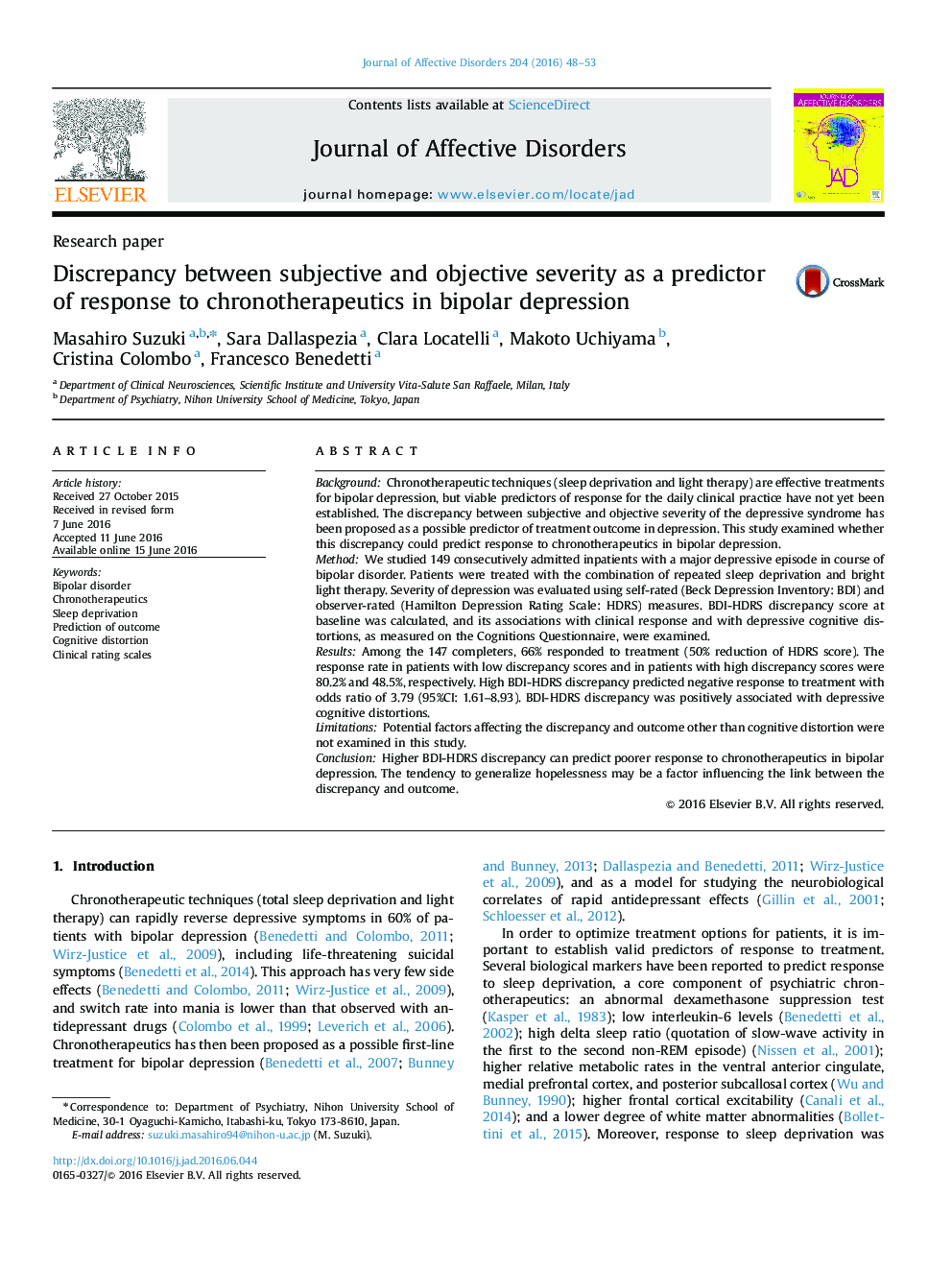| کد مقاله | کد نشریه | سال انتشار | مقاله انگلیسی | نسخه تمام متن |
|---|---|---|---|---|
| 6229579 | 1608121 | 2016 | 6 صفحه PDF | دانلود رایگان |

- Chronotherapeutic techniques are effective treatments for bipolar depression.
- Higher BDI-HDRS discrepancy predicted poorer response to chronotherapeutics.
- BDI-HDRS discrepancy was associated with depressive cognitive distortions.
BackgroundChronotherapeutic techniques (sleep deprivation and light therapy) are effective treatments for bipolar depression, but viable predictors of response for the daily clinical practice have not yet been established. The discrepancy between subjective and objective severity of the depressive syndrome has been proposed as a possible predictor of treatment outcome in depression. This study examined whether this discrepancy could predict response to chronotherapeutics in bipolar depression.MethodWe studied 149 consecutively admitted inpatients with a major depressive episode in course of bipolar disorder. Patients were treated with the combination of repeated sleep deprivation and bright light therapy. Severity of depression was evaluated using self-rated (Beck Depression Inventory: BDI) and observer-rated (Hamilton Depression Rating Scale: HDRS) measures. BDI-HDRS discrepancy score at baseline was calculated, and its associations with clinical response and with depressive cognitive distortions, as measured on the Cognitions Questionnaire, were examined.ResultsAmong the 147 completers, 66% responded to treatment (50% reduction of HDRS score). The response rate in patients with low discrepancy scores and in patients with high discrepancy scores were 80.2% and 48.5%, respectively. High BDI-HDRS discrepancy predicted negative response to treatment with odds ratio of 3.79 (95%CI: 1.61-8.93). BDI-HDRS discrepancy was positively associated with depressive cognitive distortions.LimitationsPotential factors affecting the discrepancy and outcome other than cognitive distortion were not examined in this study.ConclusionHigher BDI-HDRS discrepancy can predict poorer response to chronotherapeutics in bipolar depression. The tendency to generalize hopelessness may be a factor influencing the link between the discrepancy and outcome.
Journal: Journal of Affective Disorders - Volume 204, 1 November 2016, Pages 48-53